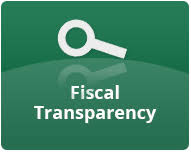
Fiscal transparency apprises citizens of how the government uses tax revenues by providing them a window into Treasury budgets. In turn, those citizens can hold their government accountable, thus underpinning market confidence and sustainability.
In the same vein, fiscal accountability entails compliance with stipulated laws and regulations, consistency with suitable accounting principles, accuracy and fairness of financial statements, and enforcement of the legitimacy of budgetary expenditures.
In other words, accountability is accepting responsibility for honest and ethical conduct towards others.
According to Zimbabwe’s constitution, financial management must be responsible, fiscal reporting must be clear, and public borrowing and all national debt transactions must be carried out transparently and in the best interests of Zimbabwe. All public funds must be used transparently, prudently, economically, and effectively. But it is not just about the government's responsibility. It is about the public's right to participate. There should be formal and increased opportunities for the public, including disadvantaged groups and marginalized communities, to engage in all national and local budget processes. This is not just a suggestion but a constitutional requirement promoting inclusivity and democracy.
The constitution further highlights the need for strong oversight institutions, including the Office of the Auditor-General (OAG), Zimbabwe Anti-Corruption Commission (ZACC), Parliament, and other bodies with oversight functions concerning PFM.
These institutions should be adequately resourced and independent to provide effective oversight of the executive branch’s financial management processes. This is not just a suggestion, it is a constitutional requirement that ensures the integrity of our financial management processes.
Furthermore, effective PFM must be sustainable. This means that the government, public bodies, and officials should strive to contribute to and protect the nation's financial stability. The burdens and benefits of using resources must be shared equitably between present and future generations.
Last but not least, the constitution calls for fiscal equity where all PFM systems are directed towards national development, and in particular, the burden of taxation is shared fairly; revenue raised nationally is shared equitably between the central government and provincial and local tiers of government; and expenditure is directed towards the development of the nation, and special provision is made for marginalized groups and places.
- A president who’s always seeing enemies, detractors is oftentimes the problem
- Zacc fails to account for expenses
- Top lawyer Mpofu in Zacc crosshairs
- Police boss dragged into messy court case
Keep Reading
Generally, fiscal transparency and accountability (T&A) are the primary building pillars governing democratic nations. Fiscal transparency opens the government to those it serves, that is, allowing the public to participate and keep informed of thegovernment’s budgets, spending, and projects. It is also a powerful weapon against corruption because when government processes become transparent, public officials will have limited scope to engage in corrupt activities.
More so, a fiscally accountable government is responsive to the needs of the public it serves. As such, it listens to the voices of all citizens and uses citizen feedback to shape and improve its policies and programs. Therefore, fiscal T&A is critical in stimulating public engagement, building public trust & confidence in their government, improving government responsiveness & discipline, helping shine the light on leakages, and improving efficiency in public expenditures.
In an ideal world, there is a full implementation of PFM-related legislation, which is vital in bringing maximum efficiency to all financial management. If this holds, one would expect the presence of all budget (fiscal) transparency indicators. For example, the government would be ensuring that budget documents and data are open, transparent, and accessible through the availability of clear, factual budget reports, which should inform the critical stages of policy formulation, consideration, and debate, as well as implementation and review.
Also, all the budgets and government spending will be approved only by the Parliament. Similarly, the Parliament will be awarded adequate time to scrutinize and approve budget proposals after extensive public parliamentary debates. At the same time, the citizens will be provided equal opportunities to participate in public debates and the design of fiscal policies. This mainly includes budget consultations and the publication of simplified citizens’ budgets.
Furthermore, there will be unlimited access to all public information, adequate resources, and maximum statutory independence of oversight and control institutions such as the Supreme Audit Institutions (SAIs) - the Office of Auditor-General (OAG) in the case of Zimbabwe. There will also be maximum integrity in public sector procurement. This entails opening up the entire public procurement cycle, including openness in the procurement system (procedures, regulations & institutional frameworks), competitive tenders, bidding documents, contract documents, and evaluation reports.
Nevertheless, the reality shows that there is much to be desired in Zimbabwe’s quest for fiscal transparency. For instance, the parliament follows a whipping system where MPs are whipped/coerced to vote according to their party’s given positions rather than according to their ideology or the will of their constituents.
This helps to explain why, over the years, the Treasury has realized budget overruns even without parliamentary blessing, knowing that the same Parliament will approve the request for condonation without any repercussions whatsoever. For instance, despite budget surplus rhetoric, the Treasury incurred cumulative budget overruns of ZWL100.7 billion during the Transitional Stabilization Programme (TSP) (2019-2020) period. It reportedly spent more than planned (US$10 billion) during 2015-18.
Fiscal transparency apprises citizens of how the government uses tax revenues by providing them a window into Treasury budgets. In turn, those citizens can hold their government accountable, thus underpinning market confidence and sustainability.
In the same vein, fiscal accountability entails compliance with stipulated laws and regulations, consistency with suitable accounting principles, accuracy and fairness of financial statements, and enforcement of the legitimacy of budgetary expenditures.
In other words, accountability is accepting responsibility for honest and ethical conduct towards others.
According to Zimbabwe’s constitution, financial management must be responsible, fiscal reporting must be clear, and public borrowing and all national debt transactions must be carried out transparently and in the best interests of Zimbabwe. All public funds must be used transparently, prudently, economically, and effectively. But it is not just about the government's responsibility. It is about the public's right to participate. There should be formal and increased opportunities for the public, including disadvantaged groups and marginalized communities, to engage in all national and local budget processes. This is not just a suggestion but a constitutional requirement promoting inclusivity and democracy.
The constitution further highlights the need for strong oversight institutions, including the Office of the Auditor-General (OAG), Zimbabwe Anti-Corruption Commission (ZACC), Parliament, and other bodies with oversight functions concerning PFM.
These institutions should be adequately resourced and independent to provide effective oversight of the executive branch’s financial management processes. This is not just a suggestion, it is a constitutional requirement that ensures the integrity of our financial management processes.
Furthermore, effective PFM must be sustainable. This means that the government, public bodies, and officials should strive to contribute to and protect the nation's financial stability. The burdens and benefits of using resources must be shared equitably between present and future generations.
Last but not least, the constitution calls for fiscal equity where all PFM systems are directed towards national development, and in particular, the burden of taxation is shared fairly; revenue raised nationally is shared equitably between the central government and provincial and local tiers of government; and expenditure is directed towards the development of the nation, and special provision is made for marginalized groups and places.
Generally, fiscal transparency and accountability (T&A) are the primary building pillars governing democratic nations. Fiscal transparency opens the government to those it serves, that is, allowing the public to participate and keep informed of thegovernment’s budgets, spending, and projects. It is also a powerful weapon against corruption because when government processes become transparent, public officials will have limited scope to engage in corrupt activities.
More so, a fiscally accountable government is responsive to the needs of the public it serves. As such, it listens to the voices of all citizens and uses citizen feedback to shape and improve its policies and programs. Therefore, fiscal T&A is critical in stimulating public engagement, building public trust & confidence in their government, improving government responsiveness & discipline, helping shine the light on leakages, and improving efficiency in public expenditures.
In an ideal world, there is a full implementation of PFM-related legislation, which is vital in bringing maximum efficiency to all financial management. If this holds, one would expect the presence of all budget (fiscal) transparency indicators. For example, the government would be ensuring that budget documents and data are open, transparent, and accessible through the availability of clear, factual budget reports, which should inform the critical stages of policy formulation, consideration, and debate, as well as implementation and review.
Also, all the budgets and government spending will be approved only by the Parliament. Similarly, the Parliament will be awarded adequate time to scrutinize and approve budget proposals after extensive public parliamentary debates. At the same time, the citizens will be provided equal opportunities to participate in public debates and the design of fiscal policies. This mainly includes budget consultations and the publication of simplified citizens’ budgets.
Furthermore, there will be unlimited access to all public information, adequate resources, and maximum statutory independence of oversight and control institutions such as the Supreme Audit Institutions (SAIs) - the Office of Auditor-General (OAG) in the case of Zimbabwe. There will also be maximum integrity in public sector procurement. This entails opening up the entire public procurement cycle, including openness in the procurement system (procedures, regulations & institutional frameworks), competitive tenders, bidding documents, contract documents, and evaluation reports.
Nevertheless, the reality shows that there is much to be desired in Zimbabwe’s quest for fiscal transparency. For instance, the parliament follows a whipping system where MPs are whipped/coerced to vote according to their party’s given positions rather than according to their ideology or the will of their constituents.
This helps to explain why, over the years, the Treasury has realized budget overruns even without parliamentary blessing, knowing that the same Parliament will approve the request for condonation without any repercussions whatsoever. For instance, despite budget surplus rhetoric, the Treasury incurred cumulative budget overruns of ZWL100.7 billion during the Transitional Stabilization Programme (TSP) (2019-2020) period. It reportedly spent more than planned (US$10 billion) during 2015-18.
Also, underfunding parliamentary businesses like the Parliamentary Budget Office (PBO) has fuelled the brain drain. The massive exodus of experienced PBO employees is now constraining a more informed engagement between the legislative branch and its executive counterpart.
A weak legislature is a free window for the Treasury to propose and implement unsustainable fiscal policies and budgets. The longevity of Parliamentary underfunding has degenerated into severe capacity issues, thereby inhibiting it from performing its crucial oversight function.
The oversight function allows Parliament to assert the system of checks and balances on the Executive branch and acts as the defender of citizens’ interests.
Oversight ensures that government policies and actions are efficient and commensurate with the needs of the public, helps identify misconduct or deficits, and allows for remedial actions against the Executive. In light of the preceding, oversight is a central means of ensuring good governance and holding the executive to account to prevent or sanction the abuse of authority.
More so, Zimbabwe lacks independent internal auditors at the Treasury. A closer look at the existing PFM legislation shows that the reporting structure of internal auditors is limiting their independence. They are mandated to report to the Chief Accounting Officer, the Permanent Secretary. For transparency’s sake, the person under audit should not be the one to oversee the audit.
There is also an apparent disregard for public audit requirements, as shown by the continuous late submissions of accounts by public institutions for auditing by the Auditor-General.
MDAs are also ignoring the OAG recommendations.
The nation is also characterized by procurement scandals associated with tenderprenuership deals. These closed deals fail to ensure a fairer and equitable treatment of all potential government suppliers and eliminate competition, thus contributing to poor value for money for citizens. In addition, the nation is failing to account for revenues and expenditures in natural resources, primarily due to escalating cases of mineral smuggling. For example, government statistics show that forex-strapped Zimbabwe is losing approximately US$100 million in monthly revenue to gold smuggling alone.
All this undermines fiscal transparency and accountability, breeding corruption and abuse of public resources.
- Sibanda is an economist, a research associate with Zimcodd and a staunch advocate for inclusive and sustainable development. He writes in his personal capacity.











